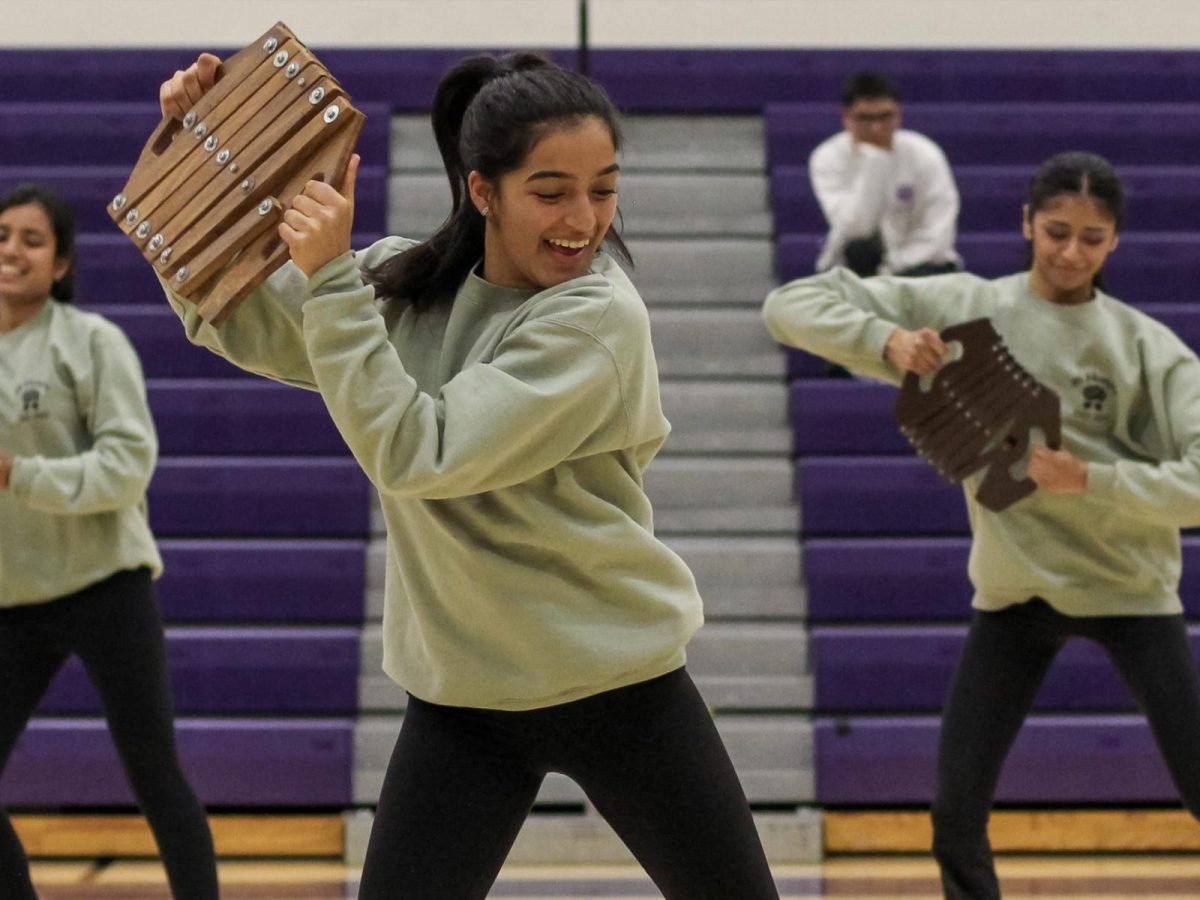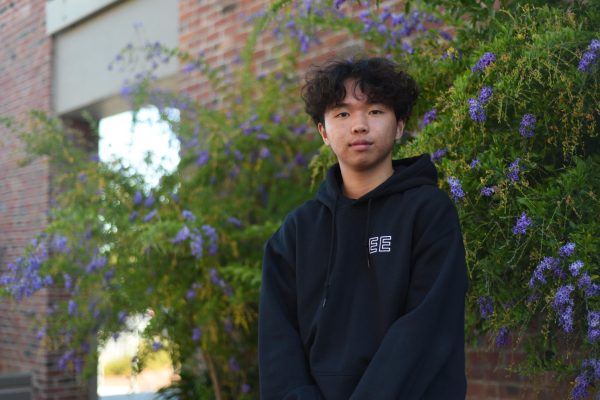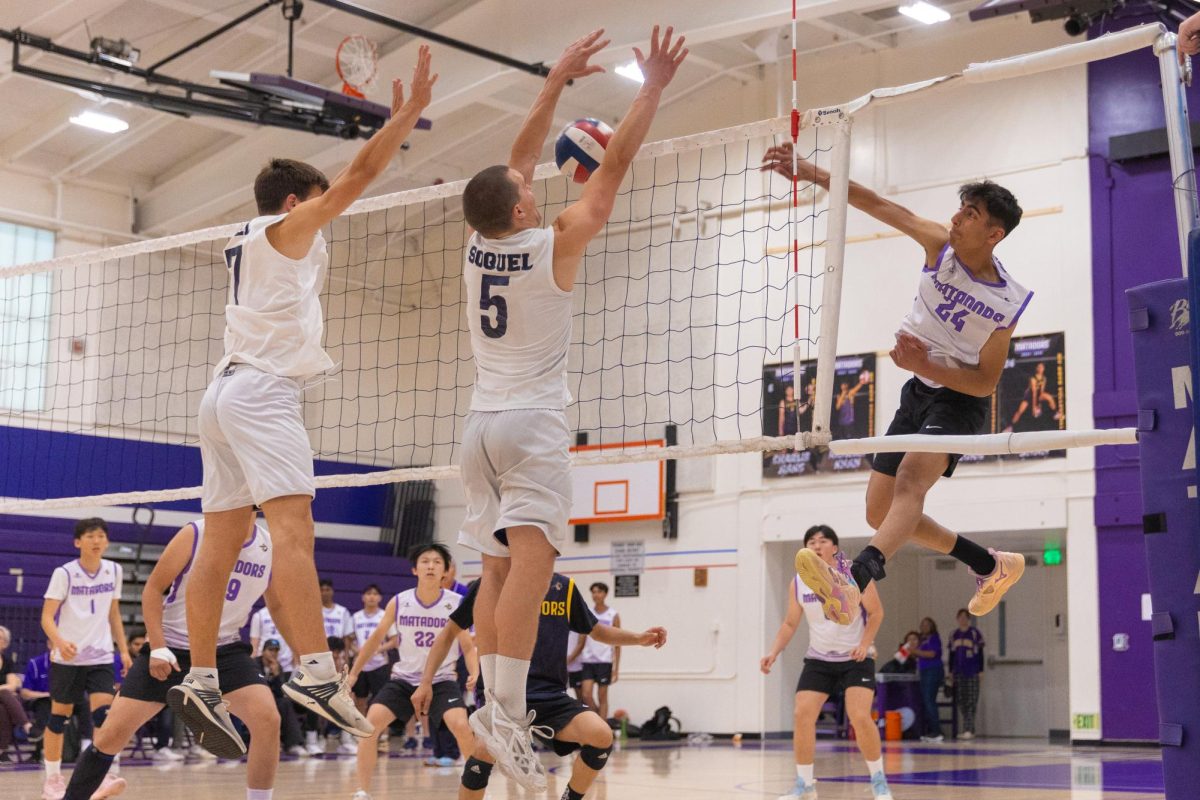Senior Aarushi Jain joined MV Bhangra her freshman year of high school, hoping to explore the folk style of dancing that originated in Punjabi, India. Having danced all her life, Jain was accustomed to the numerous aspects of dancing. However, one particular characteristic marks a unique distinction from her previous dance teams: the Bhangra team is not led by a coach.
In comparison to all of the sports teams at MVHS, MV Bhangra is a club, which means it is managed by three or four student captains every year. These teams have many performances throughout the year for fun, whereas the MV Dance Team — legally required to have a guardian — competes in national competitions. Yet, Jain believes that the lack of coaches or competition does not diminish the value and dedication of the clubs.
“Every set of captains since my freshman year have done a wonderful job, even if it may be their first year,” Jain said. “It always works out really well because our students who turn into captains have a lot of fresh experience and also a lot of creativity.”
Now a captain and entering her fourth year of Bhangra, Jain attributes much of her personal growth to the unique environment created by an absence of coaches. Jain emphasizes that there is a large responsibility that comes with being a captain, coupled with a high level of maturity and understanding needed for the role.
“I feel like I’m the mother of the team sometimes,” Jain said. “I’m always in charge of the well-being of my members and reaching out to help them if they’re not caught up on all the choreography. It really helped me grow in my leadership skills. I learned how to resolve conflicts, how to work under pressure and how to be a good leader who is detail-oriented and empathetic toward the team.”
MV Bhangra is one of the three Indian dance clubs on campus, the two others being MV Andaaz and MV Raas. All three teams are completely student-operated. Sophomore, MV Andaaz captain and MV Dance Team member Shreeya Setty thinks that having a coach for these clubs would add a level of unnecessary stress and seriousness.
“In my opinion, it makes it more of a serious deal,” Setty said. “I think if the clubs were a sport that competes, it would make sense to have a coach. But as a club, having a coach just takes the fun out of it. I think the dynamic we have right now — with all of us being friends, being able to talk to each other and having fun — is great. I don’t think we need a coach because, as a club, we should be student-run, and I think we’re doing a great job with that right now.”
Jain shares a similar sentiment, citing that some of her favorite moments from Bhangra come from hanging out with friends and that the bond between them often can’t be replicated with the presence of a coach. One moment Jain specifically recalls is getting ready for a show they were running late on. With all the members rushing around, zipping up costumes for one another, she finds that despite all the stress, it became a great bonding experience for the team because — in the absence of a coach — they had to all rely and depend on each other.
“I feel like sometimes, coaches can be really strict,” Jain said. “I think student captains are able to be strict but at the same time be able to connect with the students on the team more because they are students, and there is a lot more understanding. And I think it’s really cool to have student to student connections. Captains can be mentors for the members but also be friends at the same time, so it’s a very open relationship.”
Yet, Setty believes that there are still undeniable benefits to having a coach. According to Setty, the MV Dance Coach Joy Lee helps hold the team accountable and ensures they are always on top of things. Setty also points out that high school students have busy lives and coaches are capable of supporting them.
“Our coach is very necessary for our team to function,” Setty said. “She does a lot of the planning, and she is the backbone of our team. Last Saturday, we went to Sacramento for a competition. She organized everything, so that we didn’t have to worry about it. She has everything booked: our buses, our plane tickets, our senior night food, all of that. It’s very hard to deal with so many high schoolers, and it’s nice to have someone who can do that. She does a great job.”
Setty adds that her coach’s duties are impossible for a student to fulfill and that even with the captains and officers on the team, it would still be overwhelming without adult support. Lee shares a similar sentiment and believes that having a coach who is a respected adult is essential for the well-being of both the team and its members. She believes that along with coaching members to be greater dancers, coaches should also be people with integrity and passion to help the team succeed beyond competing. As a coach, Lee emphasizes that it’s important for her to create a safe space for the entire team.
“I think coaches help teams by being able to rally them together, especially when the team needs it most,” Lee said. “It’s really important for the kids also to learn those leadership skills because we don’t expect everyone to be a dancer, but we do expect everyone to be a good person in the future.”
Ultimately, Setty notes that she doesn’t favor having a coach over not having one. To her, it is never about which is better but rather about each team’s unique experiences.
“I think having both a coach for one and no coaches for the other is nice and manageable for me,” Setty said. “If they were both so competitive, that would be really hard to manage mentally and physically. I’m glad that one is a space where I can have fun and not take it too seriously, and the other is a space where it is a little bit more serious, more competitive, and a lot more work put into it. I really like the contrast between the two, and I get the best of both worlds.”












